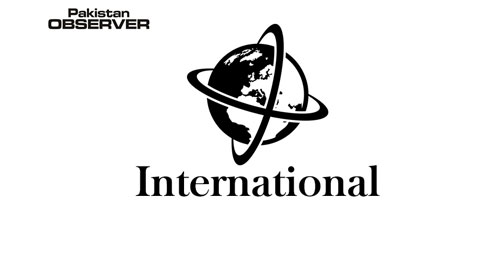Washington/Seoul
US nightlife capitals New York and Los Angeles ordered bars and restaurants to close or go take-out only as the country scrambled to contain the coronavirus pandemic and the Federal Reserve slashed rates to stem the fallout.
The fast-spreading outbreak has claimed almost 70 lives in the United States, disrupting every walk of life as Americans — watching Europe plunge into lockdown, and panic-buying at home — brace for what is to come.
Faced with an economic shutdown, the Fed announced a raft of emergency measures to shore up confidence and keep the financial sector running, including cutting the key interest rate to 0-0.25 percent.
President Donald Trump, addressing a now-daily briefing of the White House task force on the crisis, praised the ‘phenomenal’ action by the Fed, and sought a reassuring tone even as he pleaded with Americans to stop stripping store shelves bare.
‘Relax. We’re doing great. It all will pass,’ the president said. But Anthony Fauci, the country’s leading expert on infectious diseases, was blunt in telling Americans to prepare for hard times ahead, saying it was vital the country made the right choices.
‘The worst is ahead for us,’ he told the briefing. ‘We have a very, very critical point now.’ In drastic measures, New York’s Mayor Bill de Blasio said the city’s usually buzzing bars and restaurants would be restricted to take-out or delivery, and that nightclubs, theaters and concert venues must close starting Tuesday.
Schools, museums and sports arenas have already closed in many US states — but lively St Patrick’s Day celebrations were still held despite pleas to limit socializing, prompting calls for more aggressive action.
‘Our city is facing an unprecedented threat, and we must respond with a wartime mentality,’ De Blasio said in a statement.
A total of 140 countries and territories were imposing entry bans or stricter quarantine procedures or plan to do so for people from South Korea over coronavirus concerns Monday, the foreign ministry said.
The number of countries and territories set to bar or barring the entry of people who have visited Korea at least in the past two weeks came to 71, up by six from the previous day, the ministry’s chart showed.
Bolivia and South Africa were the latest to have newly joined the list, announcing they will bring into force this week the entry ban on travelers from several coronavirus-hit countries and regions, including Korea.
Belize, Tunisia, Ghana and Kenya toughened their travel curbs to ban the entry of foreigners from virus-affected nations, as opposed to so far having imposed stricter quarantine systems like a 14-day self-isolation.
Some exceptions apply to those with long-stay visas, residential permits or other essential reasons. Six countries, unchanged from the previous tally, were imposing an entry ban for people flying in from southeastern parts of Korea — Daegu city and North Gyeongsang Province — where the majority of COVID-19 outbreaks have occurred.
A total of 17 countries and territories, including 22 cities, provinces and autonomous regions of China, were taking tougher quarantine measures, mostly a two-week mandatory isolation at designated facilities.
The number of countries and territories imposing stricter health screenings and requiring or recommending isolation stood at 46.
South Korea reported 74 new cases of confirmed coronavirus infections Monday, bringing the total infection tally to 8,236, with 75 deaths.
The coronavirus outbreak in France is ‘very worrying’ and ‘deteriorating very fast’, the head of the country’s health service said Monday.
‘The number of cases double every three days,’ Jerome Salomon said on France Inter, adding that the number of seriously ill patients and those needing intensive care ‘runs into hundreds’.—AFP










